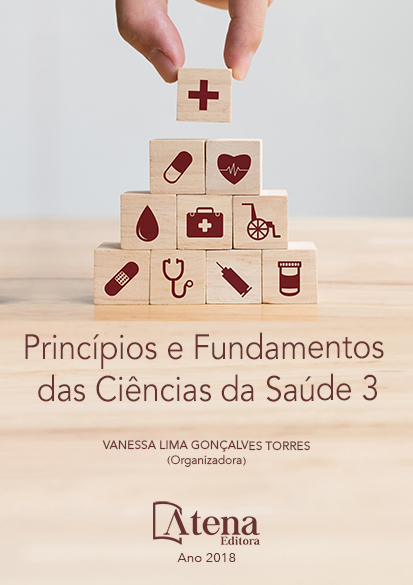
AVALIAÇÃO DA VIABILIDADE DE INSERÇÃO DE UM MAIOR NÚMERO DE MEDICAMENTOS FITOTERÁPICOS NA ATENÇÃO BÁSICA EM SAÚDE DO MUNICÍPIO DE SANTO ÂNGELO/RS
Apesar do estímulo do Governo
Federal, através de políticas públicas, em
implementar a fitoterapia no Sistema Único de
Saúde (SUS), e da inserção de fitoterápicos na
Relação Nacional de Medicamentos Essenciais
(RENAME), a disponibilidade e o uso de
medicamentos fitoterápicos no SUS ainda não
é uma realidade em muitas localidades do
país, incluindo o município de Santo Ângelo/
RS. Tendo em vista os benefícios terapêuticos,
econômicos e sociais destes produtos, a
ampliação das alternativas terapêuticas
e a substituição de alguns medicamentos
“sintéticos” por eles, deve ser discutida. Assim,
fez-se necessário a realização de estudo
mais aprofundado, reunindo e analisando
características terapêuticas e a viabilidade
destes produtos, caso a caso, objetivando
orientar profissionais de saúde e gestores, a fim
de garantir à população acesso seguro e uso
racional dos fitoterápicos. Para tanto, levantou-se
informações dos doze fitoterápicos disponíveis
na RENAME 2014 utilizando-se de revisão em
livros e artigos científicos disponíveis, como
também do custo monetário dos medicamentos.
Ao avaliar a viabilidade da inserção dos
fitoterápicos na Atenção Básica em Saúde do
município, levando-se em consideração seu
custo-benefício-efetividade, observou-se que
os medicamentos que mostraram-se mais
adequados para inclusão na Relação Municipal
de Medicamentos Essenciais (REMUME) são
Alcachofra, Babosa, Hortelã, Espinheira-santa,
Guaco, Isoflavona de soja e Unha-de-gato.
Não foram considerados vantajosos a Aroeira,
Cáscara-sagrada, Garra-do-diabo, Plantago
e Salgueiro. Os dados levantados, a análise
realizada e o material elaborado neste trabalho é
relevante no auxílio dos gestores para a seleção
e aquisição dos medicamentos fitoterápicos,
buscando sua inserção na Atenção Básica em
Saúde do município.
AVALIAÇÃO DA VIABILIDADE DE INSERÇÃO DE UM MAIOR NÚMERO DE MEDICAMENTOS FITOTERÁPICOS NA ATENÇÃO BÁSICA EM SAÚDE DO MUNICÍPIO DE SANTO ÂNGELO/RS
-
DOI: Atena
-
Palavras-chave: Fitoterapia; Atenção Básica em Saúde; Medicamentos Fitoterápicos; RENAME.
-
Keywords: Phytotherapy; Basic Health Care; Herbal Medicines; RENAME.
-
Abstract:
Despite the Federal Government’s
efforts, through public policies, to implement
Phytotherapy in the Unified Health System (SUS), and the insertion of phytotherapics
in the National Relation of Essential Medicines (RENAME), the availability and use of
herbal medicines in the SUS is not yet a reality in many localities of the country, including
the city of Santo Ângelo/RS. In view of the therapeutic, economic and social benefits of
these products, the expansion of therapeutic alternatives and the replacement of some
“synthetic” drugs by them should be discussed. Thus, it was necessary to carry out a
more detailed study, gathering and analyzing therapeutic characteristics and the viability
of these products, case by case, aiming to guide health professionals and managers,
in order to guarantee the population safe access and rational use of herbal medicines.
For this purpose, information was collected on the twelve herbal medicines available in
RENAME 2014, using review of books and scientific articles, as well as the monetary
cost of medicines. When evaluating the feasibility of insertion of phytotherapics in the
Basic Health Care of the city, taking into account its cost-effectiveness, it was observed
that the herbal medicines that were most adequate for inclusion in the Municipal Relation
of Essential Medicines (REMUME) are Cynara scolymus, Aloe vera, Mentha x piperita,
Maytenus ilicifolia, Mikania glomerata, Glycine max and Uncaria tomentosa. Schinus
terebinthifolius, Rhamnus purshiana, Harpagophytum procumbens, Plantago ovata
and Salix alba were not considered advantageous. The data collected, the analysis
carried out and the material elaborated in this study are relevant to assist the managers
in the selection and acquisition of herbal medicines, seeking their insertion in the Basic
Health Care of the municipality.
-
Número de páginas: 15
- Leandro Nicolodi Francescato


